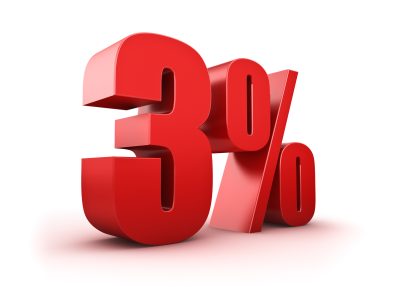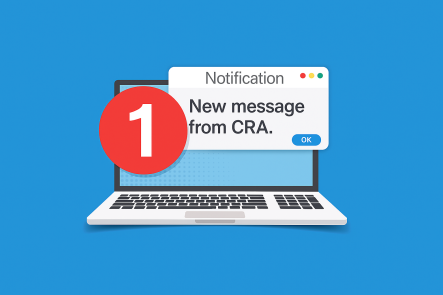Related Content
Three Tax Efficient Strategies for Managing Retained Profits | Passing the torch: The complexities of succession planning
Business owners contemplating a sale of their company in 2025 have a few new considerations to bear in mind. On a positive note, the Lifetime Capital Gains Exemption (LCGE), which previously increased annually by an inflationary index, has jumped significantly for sales taking place after June 25th, 2024, to $1,250,000 (note this legislation is still in draft form as of the date of writing). On the other hand, for sales not eligible for the LCGE, or that exceed the annual threshold of $250,000 for individuals, the transaction will be subject to the new capital gains inclusion rate (again, in draft mode at this point), which has risen from 50% to 66.67%, also effective June 25th, 2024.
Asset or Share Sale?
There are basically two ways to sell a company: the company sells its assets, or the shareholder(s) sell the shares held in that company. There are also more complex hybrid deals that are beyond the scope of this article.
In general, buyers prefer to purchase assets, whereas vendors would rather a share sale. Under an asset deal, buyers can select the assets and liabilities they want and exclude those they do not. They also benefit from being able to allocate the purchase price to what they are buying. This allows for tax savings in the form of higher annual depreciation as well as minimizing the impact of capital gains on asset sales in the future, due to the higher cost base.
Vendors on the other hand, generally prefer to take advantage of the LCGE which exempts a substantial portion of the capital gain from any personal taxes (aside from potential alternative minimum tax), assuming the shares qualify at the time of the sale.
Share Sales
Qualifying for the Lifetime Capital Gains Exemption
For business owners considering selling their company through a share sale, understanding the nuances of the LCGE is critical, especially in light of the recent increase to the capital gains inclusion rate. Qualifying is not automatic and can be jeopardized primarily on account of the nature of the assets held in the company at, and before, the time of sale. To qualify, a business must meet three key criteria:
- The shares must have been held by the shareholder for at least 24 months leading up to the sale;
- At least 50% of the business assets must have been active business assets during that 2-year period;
- On the date of the sale, 90% of the assets must be active business assets.
While the first two criteria tend not to pose any major challenges, the third can be an issue if not paying careful attention. The accumulation of passive assets, such as investment portfolios or real estate acquired over the life of the business, can throw things offside.
Mitigating the Impact if Your Business is not Eligible for the LCGE
In circumstances where a prospective share sale is not eligible for the LCGE, most commonly due to not meeting the 90% test, steps can often be taken to get back onside. Specifically, restructuring the assets through a ‘purification’ process can eliminate the offending passive assets. Such steps can be complex, hence business owners should be proactive and speak with their tax advisors to avoid unwelcome surprises when it comes to signing off on a deal.

How to Sell Your Business Guide
This guide to selling your business sets out the steps, processes, and options when selling a business that can help business owners maximize the return…
Learn more >Asset Sales
Until 2017, the tax treatment of the sale of assets by a company had been rather favourable. The gains generated within the company were treated as active business income and therefore subject to low corporate tax rates, meaning vendors did not have to fork over substantial portions of the sale proceeds to the Canada Revenue Agency (CRA).
Effective January 1, 2017, the government announced key changes to tax legislation that affected the after-tax proceeds to be retained when business owners sell their company’s assets, specifically, rules surrounding gains on Eligible Capital Property (ECP). ECP includes intangible assets such as trademarks, customer lists, licenses, franchise rights, and most importantly, goodwill.
Most business sales contain at least some goodwill and it is often one of the most substantial assets they have to sell. Developed over the lifetime of the company, it represents the value of the business, often associated with brand recognition, reputation with customers, and patents or proprietary technology, whether purchased or developed internally.
Under the old rules, half of the proceeds allocated to the sale of goodwill were subject to tax as active business income; currently 12.2% on income below $500,000 and 26.5% on income above $500,000 in Ontario. The other half of the proceeds were added to the company’s Capital Dividend Account (CDA), out of which dividends could be paid to shareholders with zero personal taxes payable. Not only did this allow owners to distribute a portion of the sale proceeds tax-free, but the after-tax proceeds retained in the company on the taxable portion were higher, given they were taxed at the low active corporate rates.
Under the rules that came into affect in 2017, this tax deferral has disappeared. Sale proceeds allocated to goodwill are now subject to tax as inactive investment income in the form of capital gains, as opposed to active business income. This means that the effective tax rate of 6 – 13% in Ontario, previously applied to a sale of goodwill, has increased to an effective tax rate of approximately 33%, with the new proposed capital gain inclusion rate mentioned above.
Plan Ahead for the Sale
If you are considering a sale of your business in 2025, it is worth reviewing both your corporate structure and the company’s asset mix in advance. This will highlight any steps that should be taken to optimize the sale proceeds once the deal is done.
Virtually no transaction is as significant as selling your business. Cashing out on a lifetime’s hard work should be an exciting time for any entrepreneur and one that keeps as much of the proceeds generated in your pocket as possible.
When contemplating such a substantial transaction, consulting with a tax professional can help ensure things go according to plan and that there are no unwelcome surprises, such as sharing more of the fruits of your labour with the tax authorities than necessary.
This article has been updated. It was first published in the December issue of the OCA Construction Comment magazine.







